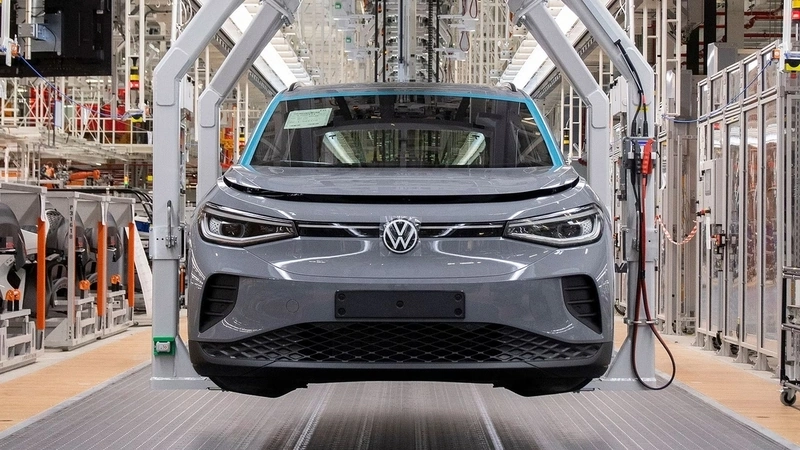According to data from the German Federal Motor Transport Authority (KBA), 29,668 battery electric vehicles (BEVs) were registered in Germany in April.
This represents a 0.2 per cent decrease compared to the same month last year.
The main reason often cited in the sector for this observed decline in recent months is the removal of the environmental bonus offered by the government.
However, this seems not to be the only reason.

During a webinar organized by The Smarter E, Elena Mandel, Program Manager Electric Mobility at NOW GmbH, pointed out:
“Currently, the German market is seeing a decrease in model offerings from German manufacturers, as Asian models are also emerging.”
Moreover, one of the Asian manufacturers gaining ground, BYD, has announced plans to consider building a second assembly plant in Europe by 2025, aligning with its goal of becoming a leading BEV manufacturer in Europe by 2030.
The company had already made an impact on the EU eMobility sector last December by announcing the construction of a BEV plant in Hungary, becoming the first major Chinese automaker with a production base on the continent.
Not only that, but the company will also be the official sponsor of the UEFA European Football Championship 2024, which will be held in Germany from June 14 to July 14.
In this regard, Mandel emphasizes that this should be addressed “to maintain and strengthen our position in the market.”
“Significant changes are on the horizon, so our European manufacturers must also prepare and strategically continue to invest in electric vehicles to prevent the market from being flooded,” she adds.
Despite the focus of the European Commission on applying possible tariffs to cars imported from Asia, some companies in the sector prefer to seek other solutions.
One example would be to support the local industry to continue producing BEVs and at the same time expand its offerings.
Imposing tariffs on foreign BEVs is not a solution that many local manufacturers embrace, as they also have a strong market in Asian countries and fear that this measure could harm them.
One of the companies with the largest market share in China is the German Volkswagen, which, fittingly, has launched the “In China, for China” strategy.
This aims for a greater focus on the local market and customers, reinforcing its technological capabilities, and reducing costs.
Even according to the latest figures published by the Federal Statistical Office, Germany remains a more exporting than importing nation.
Specifically, 786,000 electric cars were exported last year, representing a 58 per cent increase compared to 2022 (497,000 units).
The most important buying country was the Netherlands, with a quantitative share of 15.6 per cent, followed by the United Kingdom (13.4 per cent) and Belgium (12.4 per cent).
Meanwhile, BEV imports increased by 23.5 per cent from January to December last year, from 361,000 to 446,000 units.
Most of them came from China (quantitative share of 29 per cent), followed by South Korea (9.9 per cent) and the Czech Republic (9.3 per cent).
This indicates that the first country’s share in pure eCar imports more than doubled compared to the previous year when it was still around 12 per cent.
The Federal Statistical Office adds that in 2023, the German automotive industry produced more BEVs than the previous year.
In 2023, around 973,000 EVs were manufactured, a 59.9 per cent growth over 2022 (608,000 units), accounting for 29 per cent of total production.
However, in recent years, there has been a trend towards larger models with higher prices due to their larger batteries.

That is why Elena Marie Mandel argues that it is important to maintain a variety of models in the market, including small ones, to have a more affordable offer for everyone.
Volkswagen is on that path, with the announcement of the reintroduction of one of its small electric models, the ID. 2all, which will be available at prices starting below 25,000 euros.
This vehicle will have a range of up to 450 kilometers, offering the spaciousness of a Golf and the affordability of a Polo. However, it will hit the market in 2026.








